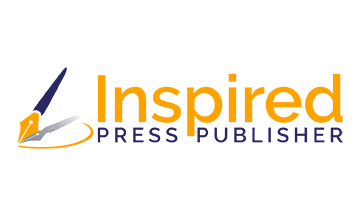Every aspiring author hits the wall: writer’s block. It doesn’t matter if you’re a coach, consultant, or expert with decades of experience—when the words won’t flow, your credibility project (aka your book) gets stuck.
At that moment, you face a decision: do you tough it out solo, or do you bring in support? Both paths have merit, but one may save you months (or even years) of frustration.
Let’s compare solo writing vs. author coaching so you can decide the best way to overcome writer’s block and finally finish your book.
The Case for Going Solo
Writing solo has obvious appeal. You control the process. You set your own pace. You answer to no one but yourself.
Pros:
- Full creative freedom.
- No cost beyond your own time and tools.
- Flexibility to write whenever inspiration strikes.
Cons:
- Isolation when you hit mental blocks.
- Easy to procrastinate without accountability.
- Risk of unfinished drafts collecting digital dust.
Solo writing works best for authors who are naturally disciplined, thrive on self-motivation, and don’t mind wrestling with stuck moments alone.
The Case for Coaching
Author coaching for writer’s block is like having a personal trainer for your book. Instead of wandering the gym clueless, you get guided reps that build momentum.
Pros:
- Structured writing plan tailored to your goals.
- Accountability that keeps you moving forward.
- Professional feedback to cut through self-doubt.
- Emotional support when motivation stalls.
- Faster progress with fewer detours.
Cons:
- Investment of money and time.
- Requires openness to feedback.
- Less “lone wolf” freedom.
For most experts and coaches balancing busy schedules, coaching can mean the difference between a half-finished draft and a published book.
The Hybrid Model: Best of Both Worlds
Not ready to fully commit to coaching? Many authors thrive with a hybrid approach:
- Write independently during the week.
- Check in with a coach or accountability partner once a week.
- Use coaching sessions for roadblocks, strategy, and feedback.
This model preserves your autonomy while still giving you the safety net of expert guidance.
Real-World Example
One Inspired Press client, a wellness coach, spent 18 months trying to finish her manuscript solo. She had passion but no system. After three months with coaching support, she not only finished her draft but also felt confident pitching speaking gigs using her book content.
Her words: “I didn’t need someone to write it for me. I needed someone to keep me writing when I wanted to give up.”
Which Path Is Right for You?
Ask yourself:
- Do I thrive with deadlines and accountability?
- Am I tired of starting and stalling?
- Would I benefit from feedback to strengthen my voice?
If you answered yes to any of these, coaching may be the smarter move. If you’re fiercely independent and already have strong writing habits, solo might work—though even then, consider light accountability.
Business Impact of the Right Choice
Your book isn’t just words—it’s a tool for credibility, client attraction, and impact. Delaying it by years because of writer’s block can mean missed revenue, lost visibility, and stalled influence.
Choosing support (even part-time) can accelerate results and ensure your ideas reach the people who need them most.
Your Next Step
At Inspired Press, we specialize in author coaching for writer’s block. Whether you need full support or just an accountability partner, we help experts and coaches:
- Break through mental blocks.
- Stay consistent with writing habits.
- Finish manuscripts faster and with confidence.
👉 If you’re weighing coaching vs. going solo, let’s talk. A free strategy call will help you map the right path for your book—and get you writing again.
Final Thought
There’s no shame in needing help. Even Olympic athletes have coaches—not because they’re weak, but because they want to perform at their best.
As an aspiring author, your book deserves the same. Whether you choose to go it alone or enlist support, remember this: the world needs your words. Don’t let writer’s block stop you from delivering them.
Perfect — let’s move into the Decision-stage case study, which provides proof and social proof.
